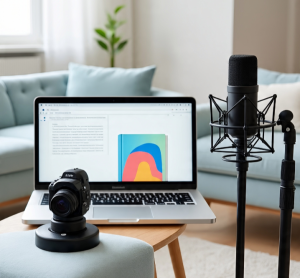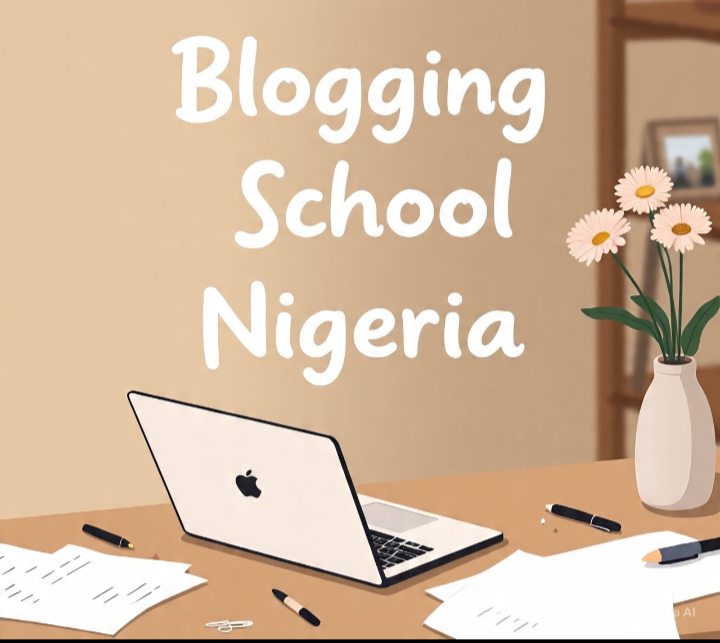Blogging vs. Vlogging vs. Podcasting – Which is Better?

If you are thinking of creating content online, one big question comes up quickly: should you write a blog, start a vlog, or launch a podcast? Each format has its own strengths, challenges, and opportunities for growth and monetization. The right choice depends on your goals, your skills, and the audience you want to reach.
This guide explains everything you need to know about blogging, vlogging, and podcasting. By the end, you’ll be able to decide which option is the best starting point for you, and how to combine them for maximum results.
—
What is Blogging?
Blogging means creating and publishing written content on a website. Blog posts usually provide tutorials, how-to guides, personal opinions, or news updates. Posts are organized in reverse chronological order (newest first).
Strengths of blogging include:
High potential for search engine traffic (SEO).
Lower startup costs since you only need domain, hosting, and writing tools.
Flexible format that allows in-depth guides, tutorials, and evergreen articles.
Many monetization opportunities such as Google AdSense, affiliate marketing, digital products, or sponsored posts.
Source https://firstsiteguide.com/blog-vs-vlog-vs-podcast/?
Weaknesses of blogging include:
Heavy competition, because many niches already have thousands of blogs.
Writing requires time, research, and editing skills.
Building emotional connection through text alone can be slower compared to voice or video.
—
What is Vlogging?
Vlogging, short for “video blogging,” means creating content in video format. Vlogs often show the creator speaking on camera, explaining something, telling a story, or demonstrating a process. Vlogging is popular on YouTube, TikTok, and Instagram.
Strengths of vlogging include:
Strong audience engagement because viewers connect with both your voice and personality.
Wide reach through video platforms like YouTube, which have built-in audiences.
Versatility, since videos can also be clipped into short videos for social media or turned into transcripts for blogs.
Source https://www.demandsage.com/podcasts-vs-vlogging/
Weaknesses of vlogging include:
Higher startup costs because of the need for cameras, lighting, and editing software.
Longer production time to record, edit, and polish content.
Reliance on platform algorithms like YouTube, which can change at any time.
—
What is Podcasting?
Podcasting is the creation of audio content, usually in episodes. Podcasts can be interviews, solo episodes, discussions, or storytelling formats. Listeners download or stream them on platforms like Spotify, Apple Podcasts, or Google Podcasts.
Strengths of podcasting include:
Convenience for the audience, since they can listen while driving, cooking, or working.
Lower visual demands since you don’t need to appear on camera.
Growing popularity, with more people discovering and subscribing to podcasts.
Builds a close connection with the audience because voice feels personal and authentic.
Weaknesses of podcasting include:
Harder discoverability because search engines cannot easily read audio. You need transcripts or detailed show notes.
Requires good microphones, editing tools, and a quiet environment.
Takes time to build a loyal audience because fewer people “stumble upon” podcasts compared to blogs or YouTube videos.
—
How They Compare
Here is how blogging, vlogging, and podcasting stack up against each other in plain terms:
Blogging is text-based, easier to optimize for SEO, and cheaper to start. It’s best if you enjoy writing, researching, and want to earn through AdSense or affiliate marketing.
Vlogging is video-based, highly engaging, and builds personal brands faster. It requires more equipment and editing but can grow quickly on platforms like YouTube.
Podcasting is audio-based, convenient for multitasking audiences, and builds loyal communities. It requires good sound quality and consistent publishing but can be repurposed into blog posts for SEO.
—
Which Option is Best for You?
Your choice depends on your goals and resources.
If you like writing, want strong search traffic, and prefer low startup costs, blogging is the best first step.
If you enjoy being on camera and want faster emotional connection with your audience, vlogging may suit you better.
If you are good at speaking, storytelling, or interviewing and don’t want to be on camera, podcasting is the way to go.
—
Tips to Choose the Right Format
1. Study your audience. Do they prefer reading, watching, or listening?
2. Evaluate your strengths. Do you enjoy writing, speaking, or performing on camera?
3. Check your resources. Blogging requires minimal equipment, vlogging requires cameras and editing, while podcasting needs audio gear.
4. Decide your monetization plan. AdSense works best with blogs and websites. YouTube ads work well for vlogs. Podcasts earn more through sponsorships.
5. Start with one format. You don’t need to do all three at once. Pick one, master it, then expand.
—
Why Blogging is Often the Best First Step
If your goal is to qualify for Google AdSense and start earning as a beginner, blogging is usually the most practical choice. AdSense requires valuable, original, and text-based content. A well-structured blog with at least 20 to 30 quality articles, plus pages like About Us, Privacy Policy, and Contact Us, has a higher chance of approval.
Once you build a strong blog, you can expand into vlogging or podcasting by repurposing your written content into videos and audio episodes.
—
The Power of Combining Formats
Many successful creators use a hybrid strategy:
Start with a blog to build search traffic.
Turn blog posts into videos for YouTube and social media.
Convert videos into audio for podcasts.
Add transcripts of podcasts and videos back into your blog to boost SEO.
This way, you reach readers, viewers, and listeners without creating three different pieces of content from scratch.
—
Final Thoughts
So, which is better: blogging, vlogging, or podcasting? The honest answer is that there is no single winner. Each format has its strengths and challenges.
Blogging is better for SEO, written guides, and AdSense.
Vlogging is better for visual engagement, fast audience growth, and YouTube monetization.
Podcasting is better for convenience, intimacy, and building loyal communities.
If you are starting today in Nigeria or anywhere else, blogging is often the smartest entry point. It is cheaper, easier to optimize for AdSense, and can later serve as the foundation for videos and podcasts.
Choose the format that matches your skills, your resources, and your audience. Remember, the best content creators often combine all three over time. Start with one, stay consistent, and grow step by step.
—
📌 FAQs (Frequently Asked Questions)
1. What is the difference between blogging, vlogging, and podcasting?
Blogging is creating written content on a website. Vlogging is creating video content, usually for YouTube or social media. Podcasting is audio content shared in episodes through platforms like Spotify and Apple Podcasts.
2. Which is easier to start: blogging, vlogging, or podcasting?
Blogging is usually the easiest and cheapest to start because you only need a domain, hosting, and writing tools. Vlogging requires cameras, lighting, and editing, while podcasting requires audio equipment.
3. Which makes more money: blogging, vlogging, or podcasting?
All three can generate income, but blogging and vlogging tend to have more established ad systems like Google AdSense and YouTube Partner Program. Podcasts earn mainly through sponsorships and affiliate deals.
4. Can I do blogging, vlogging, and podcasting at the same time?
Yes, but it’s best to start with one format, master it, and then expand. For example, you can begin with a blog, later turn your posts into YouTube videos, and repurpose those videos into podcast episodes.
5. Is blogging still profitable in 2025?
Yes, blogging remains profitable when done strategically. With SEO, high-quality content, and monetization methods like AdSense, affiliate marketing, and digital products, blogs still generate steady income.
6. Which is best for AdSense approval: blog, vlog, or podcast?
A blog is the best for AdSense approval because AdSense requires a website with original, high-quality written content. You can still monetize vlogs on YouTube and podcasts through sponsorships, but AdSense approval focuses on websites.
